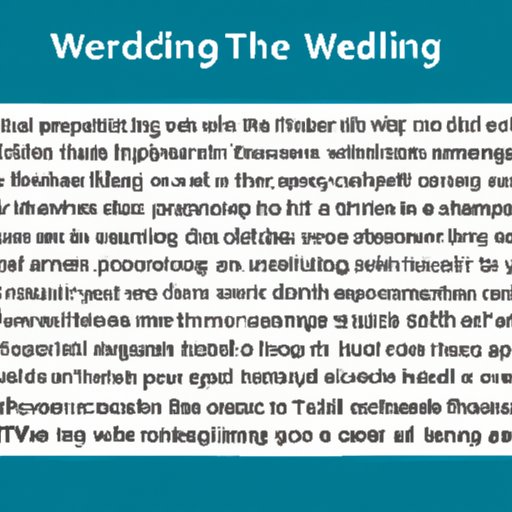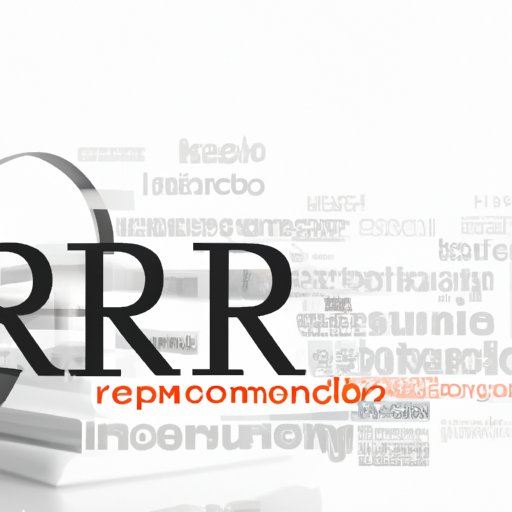Introduction
Technical writing is a specialized form of writing that requires a unique set of skills and knowledge. It’s used to communicate complex information clearly and accurately to a variety of audiences. Technical writers create documents such as instruction manuals, how-to guides, and user manuals for products or services.
Learning technical writing can help you become an effective writer and communicator, which is an important asset in many industries. With the right training, you can acquire the necessary skills to write clear and concise documents that are easy to understand.
Invest in a Technical Writing Course
One of the best ways to learn technical writing is to invest in a technical writing course. A good course will provide you with the necessary tools and techniques to become a competent technical writer. It should cover topics such as grammar, formatting, and style guidelines, as well as industry-specific topics like software documentation and user manuals.
When looking for a course, make sure it fits your needs and goals. Look for courses that include hands-on activities and exercises to help you practice your technical writing skills. Also, look for courses that are taught by experienced professionals who can provide valuable feedback and advice.

Read and Practice Technical Writing Examples
Reading and studying existing technical writing pieces can help you gain a better understanding of the craft. Look for examples from different sources, such as user manuals, instruction guides, and other technical documents. Pay attention to the structure, tone, and style of the pieces you read and try to identify what makes them effective.
Once you’ve studied existing examples, it’s time to start practicing your own technical writing. Start by creating simple documents, such as instructions for a product or service. As you continue to practice, challenge yourself by creating more complex documents. You can also ask for feedback from colleagues or peers to help you improve your writing.
Attend Conferences and Webinars
Conferences and webinars are great opportunities to learn more about technical writing. They can provide useful insights into the latest trends and developments in the field. Additionally, they often feature experienced professionals who can share their expertise and answer questions.
To find conferences and webinars related to technical writing, you can search online for upcoming events. You can also sign up for mailing lists and newsletters from organizations related to technical writing. These resources can help keep you informed of relevant events and opportunities.
Join Technical Writing Communities
Joining an online community of technical writers is another great way to learn more about technical writing. There are many websites and forums dedicated to the profession, where you can meet other writers and discuss topics such as best practices, challenges, and tips for success. Participating in these discussions can help you stay up to date on the latest trends and get helpful feedback from other writers.
Additionally, many of these communities offer job postings and other resources to help you find freelance and full-time positions as a technical writer. Joining these communities can be a great way to network and build relationships with potential employers.

Utilize Online Resources and Tutorials
The internet is full of helpful resources for learning technical writing. You can find online tutorials, books, and blogs to help you develop your skills. When looking for resources, look for those that are written by experienced technical writers and cover topics such as grammar, punctuation, and style guidelines.
You can also find tools to help you with specific tasks, such as creating diagrams and flowcharts. Make sure to read reviews and do research before downloading any tools or software.

Research Relevant Terminology and Concepts
Technical writing involves the use of specialized terminology and concepts. To be successful, you need to have a solid understanding of these terms and concepts. Research topics such as engineering, software development, and project management to familiarize yourself with the language used in these fields.
You can also read articles and books related to technical writing to learn more about the craft. This can help you gain a better understanding of how to create effective documents.
Create a Portfolio of Your Work
Once you’ve developed your technical writing skills, it’s important to create a portfolio of your work. This will showcase your abilities and demonstrate to potential employers that you have the necessary skills and experience to handle technical writing projects. You can create a website or blog to host your portfolio, or you can use platforms such as LinkedIn or Behance.
Creating a portfolio of your work can also help you build your professional reputation. By regularly updating your portfolio with new pieces, you can ensure that you remain visible to potential employers.
Conclusion
Learning technical writing can open up new opportunities for you, both professionally and personally. Investing in a technical writing course, reading and practicing existing examples, attending conferences and webinars, joining technical writing communities, utilizing online resources and tutorials, researching relevant terminology and concepts, and creating a portfolio of your work are all great ways to get started.
(Note: Is this article not meeting your expectations? Do you have knowledge or insights to share? Unlock new opportunities and expand your reach by joining our authors team. Click Registration to join us and share your expertise with our readers.)
